The Lonely Person Between Culture and Counterculture
What is culture, and how does it shape the individual and national identity? How is counterculture defined, and what manifestations does it have today, amid the rise of individual reasoning and the isolation of man as a social being?
These questions were discussed at Ayb School, during an Identity and Values session, by Edgar Baghdasaryan, filmmaker and producer, Aram Mehrabyan, director of the Printinfo Publishing House, and Fr. Mesrop Aramian, co-founder of the Ayb Educational Foundation and Ayb School.
Culture—Spiritual, Unifying, and Divine
Aram Mehrabyan
I tend to think that culture, as a phenomenon, stems from the spirit; it embodies the spirit. It takes form and appears, that is it expresses itself. Humans also try to express themselves, and thus, a resemblance between culture and human occurs. In some cases, the final result is called art when the soul transforms or finds its expression.
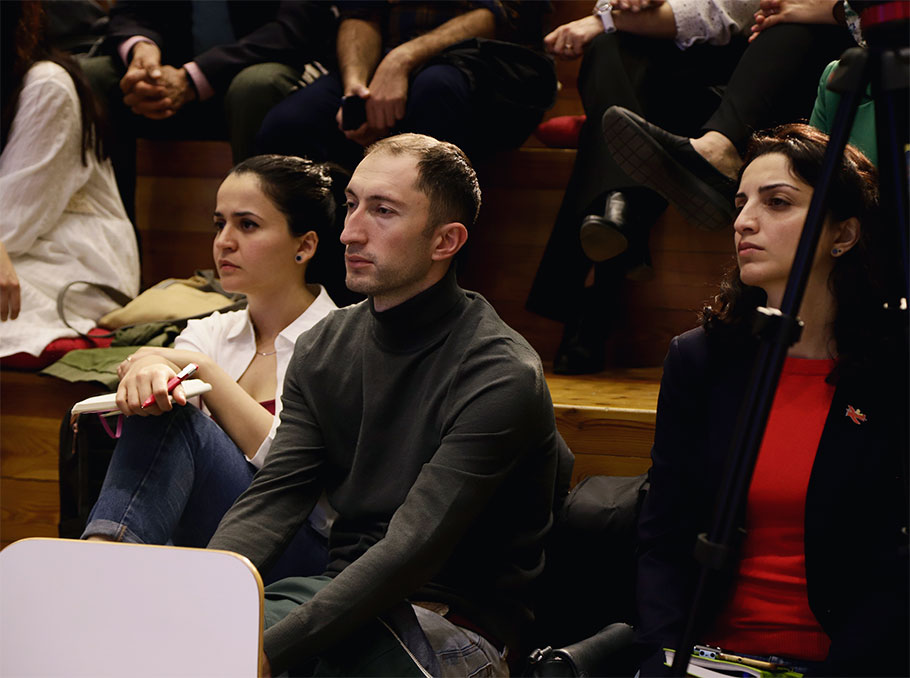
There is also a reverse path: you try to understand the expression through feedback: you try to understand what has happened, which spirit has given birth to this result. We call this science.
Mashtots translated, "Understand words of insight." According to Adjarian, the Armenian word "hanchar" (here stands for “insight”), in addition to meaning wisdom and thought, also has a second meaning: path. It is the reverse path to understanding the thing, i.e., the spirit, the logos, the word. Hence, this journey, or the “spiritual adventure of art and science” as Kostan Zaryan called it, becomes complete and transforms into culture.
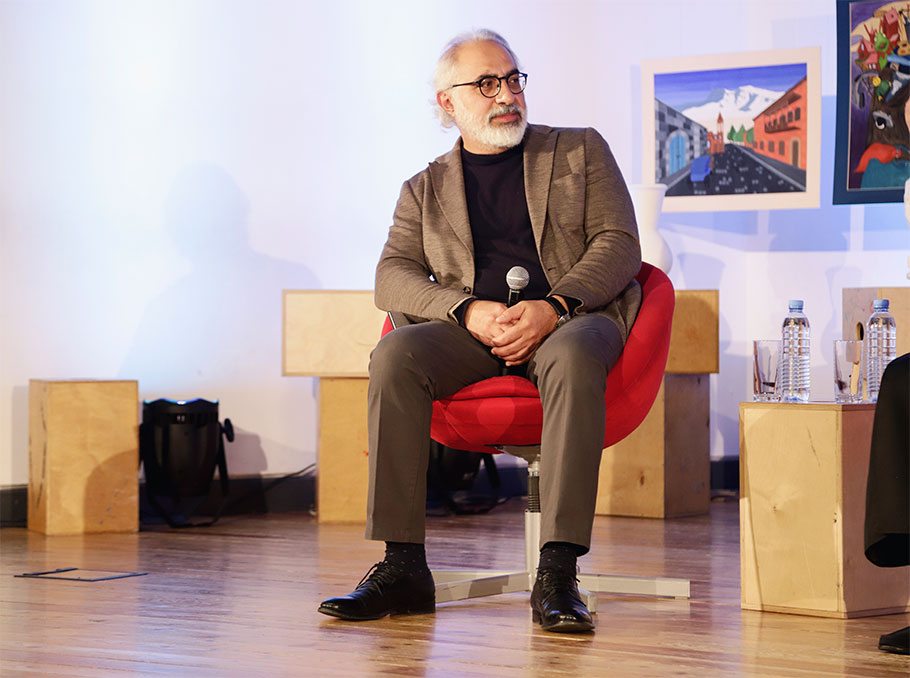
Culture is the certificate of existence of any collective—nation, tribe, or people—and its legitimization, because without culture, you are doomed to obscurity, and thus, to nonexistence. Everything else in our life—education, economy—is aimed at creating culture.
Fr. Mesrop Aramian
Culture must be something high that unites us. It must be built and created; it requires care, talent, and creativity. It must contain beauty, aesthetics, and soul. I am absolutely convinced that the true source of culture is spiritual. Real culture, which unites people, has a divine nature. It is no coincidence that for centuries the church has been the main custodian of works of art.
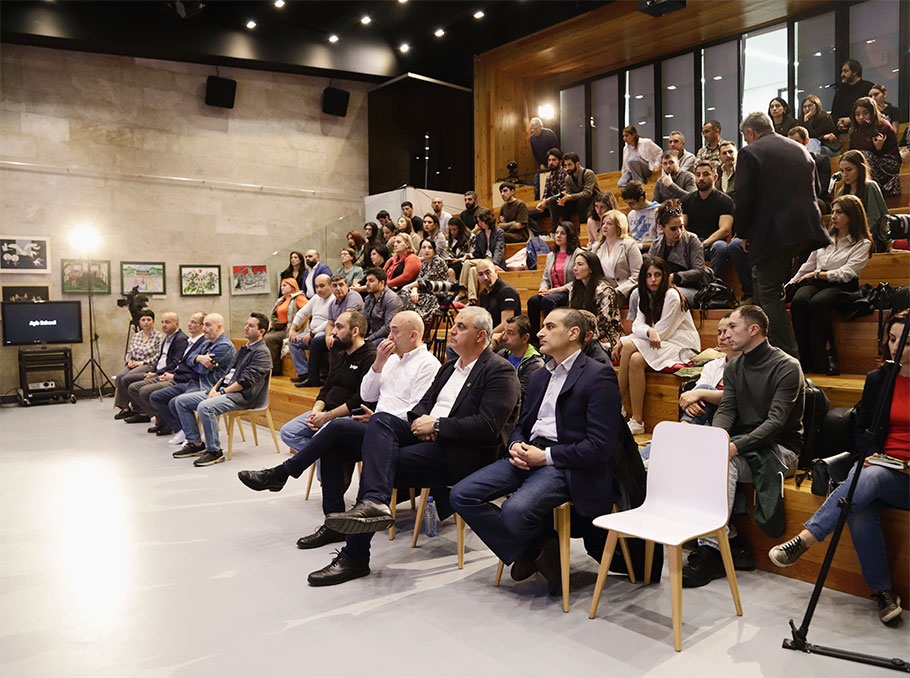
At the heart of culture, there must necessarily be an axiomatic system of values. Culture should help a person think, organize their life, find themselves, and achieve fulfillment. But culture also has a very important component: cultural paradigms. These are large "templates" or proven theorems of culture—existing conceptual, spiritual, educational, and behavioral "templates" that we use because we cannot constantly return to axiomatic systems and reach our point from there. Living in such a culture is easier than when a culture is chaotic.
Edgar Baghdasaryan
Culture is probably the most important thing that differs us from animals. Animals do not leave culture; we do. Thus, the animal spirit does not create culture; the soul does—humans. Hence, the struggle takes place in the spiritual field.
Unfortunately, today’s cultural character is derived from the cataclysms of the 20th century, brilliantly defined by Nietzsche when he said, "God is dead." The First and Second World Wars, genocides—look at what humanity has gone through. I think it’s purely a cultural conflict, a very serious conflict that is as old as humanity itself and continues to this day.
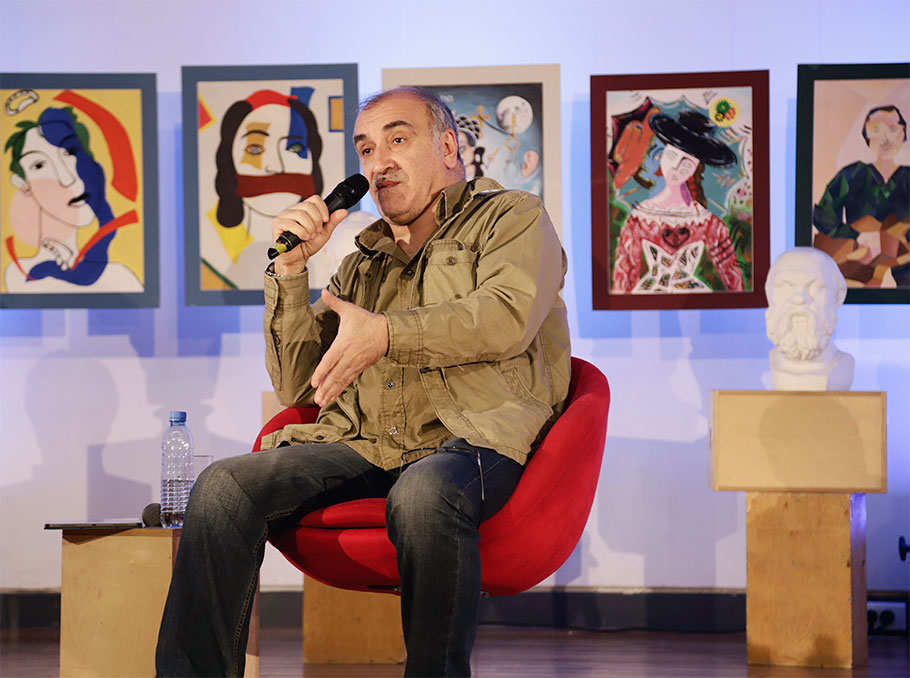
Tarkovsky said, “Нет Бога, нет искусства” (No God, no art). The fight went in that direction; it became clear that all taboos had to be removed. This is evident in cinema. At first, it repels you, but then you get used to it. We began to perceive abnormality and immorality as normal. And this is purely a cultural problem.
Manifestations of Counterculture: Zombism, ChatGPT, Sex, and Violence
Fr. Mesrop Aramian
Recently, I was reading a book where author John Vervaeke provides a very interesting analysis of countercultural, apocalyptic symbols and demonstrates how much they have intensified in human consciousness. For example, the phenomenon of zombism. The use of this word has grown exponentially in the Western world, and when people start using a word frequently, it means that in some sense, that awareness has become active in their reality.
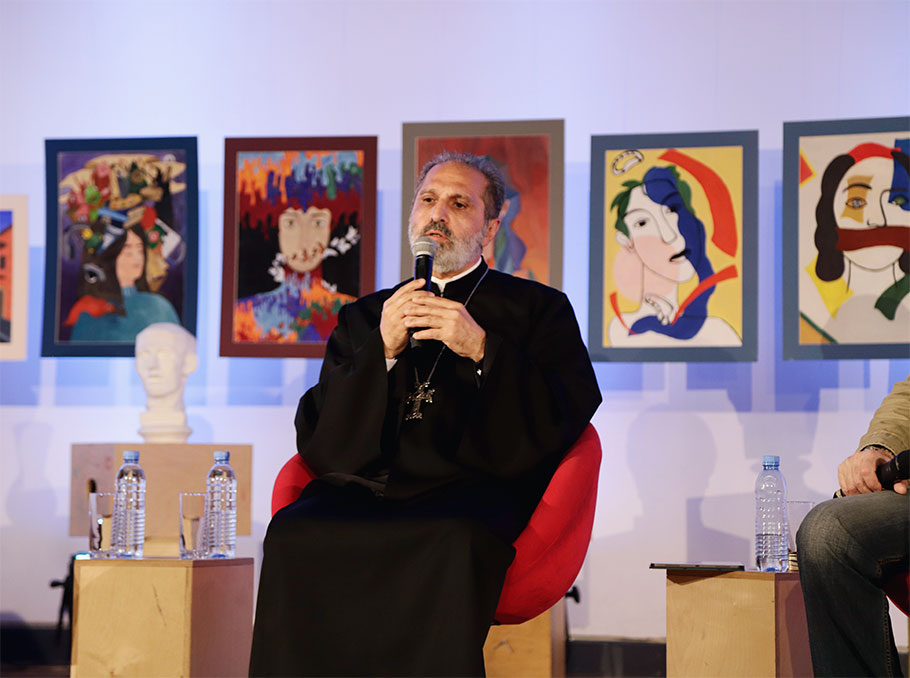
The author also analyzes all the symbols related to the concept of "zombie" and examines several key words whose usage has grown exponentially. This shows that these negative phenomena are happening.
Nowadays, a number of phenomena have emerged, such as ChatGPT, which influences everything—our thinking, education, and even programming. Today, very serious cultural changes are taking place in the world, and we must pay attention to all of this before it’s too late, especially we Armenians, who generally detach ourselves from responsibility and say, “God will take care of us; we are a God-protected nation.” Thinking this way, we don’t take responsibility for culture, believing that it is somehow automatically transmitted to us. We must engage in the cultivation of culture; there should have been cultural cultivators, but instead, we have placed our hope on miracles.
Edgar Baghdasaryan
While filming at the Museum of the Mergelyan Institute, I saw a microchip the size of my fingernail, produced in Armenia in 1967. At that time, the only other producer of such chips was Japan, specifically the Toshiba company. Mergelyan-Toshiba, small Armenia-Toshiba—can you imagine the scale? But no one knows these people; they are not considered heroes. And yet today, Public Television airs a program called “Heroes of Our Time,” where the hero is a businessman who has gathered ten women to can tomatoes. This is a completely cultural issue.
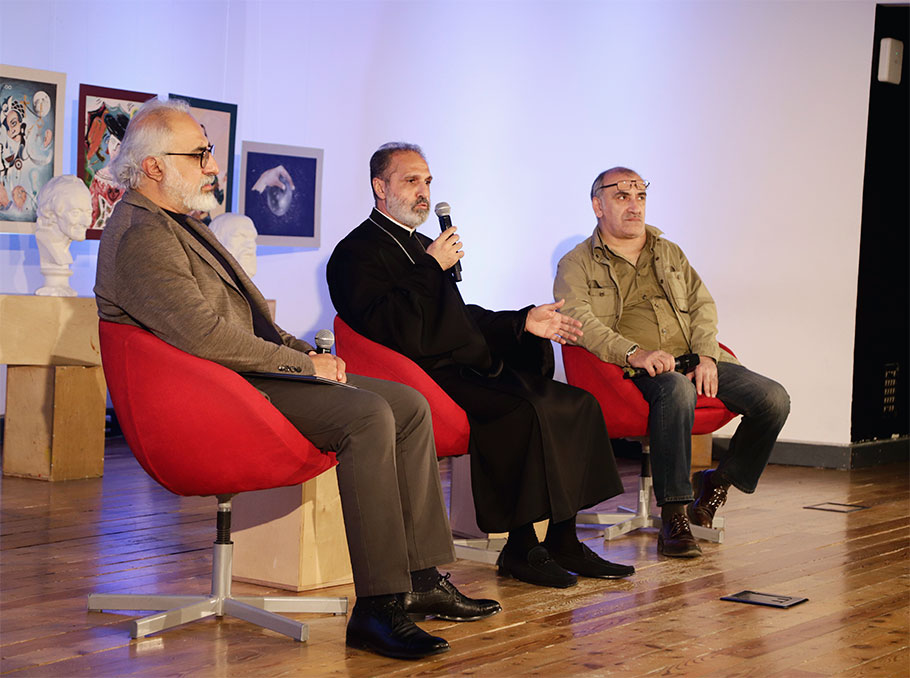
We are now experiencing a cataclysm characteristic of the entire world. Older people will remember how few murders there were in American and European cinema in the 1970s. Any murder was an event to be deeply processed. Today, devaluation of human life is happening because violence is increasingly being aestheticized. Modern culture is based on two key elements—sex and violence—because they are profitable. This is an educational issue; education must be strong enough to fill even the gaps left by family.
Who Is the Cultivator?
Aram Mehrabyan
We have had apocalyptic, ultimatum-like manifestations in Armenian reality also. One of them is Isahakyan’s very famous poem, “I tell you, a famine of the spirit will come, and you will starve at a lavish table.” For some reason, this poem becomes widely spread whenever a spiritual crisis awakens. It is a very interesting and thought-provoking poem. On the one hand, it is ultimatum-like, implying that the famine of the spirit has come and everything is over. But if we look at it from a slightly different perspective, I believe that this poem, as Charents’ “The Milky Way Travelers,” hides the solutions we are seeking.
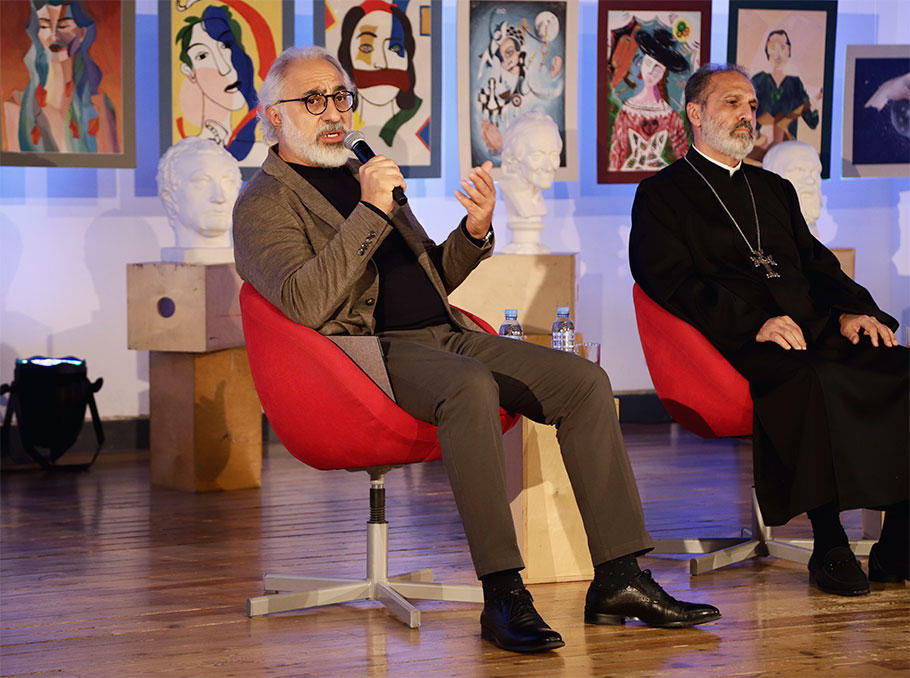
Who is a cultivator? It is a person who hungers for the spiritual. You must constantly have a hunger for the spiritual to feel the need for it, and yes, we must also starve around lavish tables. Blessed is the time when there are many spiritually hungry individuals in Armenian reality. The formula for the Armenian cultural cultivator is in the final lines of Isahakyan’s poem: “And like a beggar, thirsty for crumbs, you will pass from sea to sea.” Almost similarly, Plato says, “I know that I know nothing.” He makes a statement about the impoverishment of the soul’s knowledge, and thus, this impoverishment creates the possibility of producing something. This is the formula that helps us understand how to approach, for example, Komitas. Why would a person, as a cultivator, take such a step, enduring hardships and consciously recognizing the challenges of their identity and culture? The same applies to various cultures; we can take, for example, Van Gogh and Gauguin.
The two late individuals from our very recent reality, Armen Hakhnazaryan and Samvel Karapetyan, literally did what Isahakyan pointed out—they passed through all dangers from sea to sea, collecting spiritual crumbs to try to present a complete picture of our identity.
The Fragmented and Isolated Human
Fr. Mesrop Aramian
We are characterized by a distorted cultural state; there is an issue of wholeness because today, we are dealing with cultural elements but not with a complete culture. We must be concerned because this is not just a struggle.
Gradually, everything that makes a person human is being taken away—religion, the spirit, relationships. It is no coincidence that I spoke about artificial intelligence; now new versions are coming with even more terrifying prospects. Humanity is absolutely unprepared for this. Even without it, we already have a fully atomized, isolated society, and this is only going to deepen.

If this isolation becomes final, I would call it “world destruction”—an apocalypse. At no point in history have we worried about human isolation because humans have always been fully social beings—gathering together, sharing everything with one another, worshiping God, and holding the same values. Now, every person is told, “You are God, you decide wisdom and values. Who is Plato? Who is Einstein? You are the center of the world.” The human being has become an object of worship.
Humanitarianism and human-worship are different things, and we are now seriously seeing the consequences of the latter. The spiritual human is defeated; another type of human stands on the stage of history today—a person whose needs must simply be satisfied.
Edgar Baghdasaryan
There is an American musicologist and journalist, Alex Ross, who has a remarkable book about 20th-century contemporary music. He writes that in 1942, in America, a large stadium—70–80 thousand people—would gather to listen to Stravinsky. What do people gather for today?
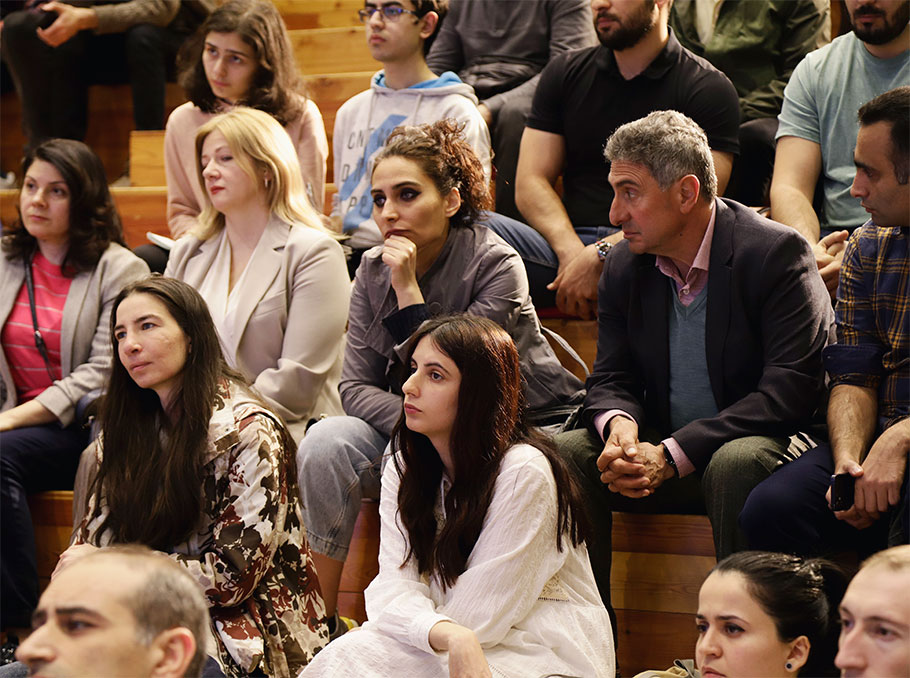
On Facebook, people post pictures of each other, share information about one another, and release their often absurd things to the world. I see a tragedy of loneliness in this. Today, we bring cinema home with home theaters, we bring music home, and we don’t communicate with each other. This way, a person becomes manageable, easily governed. That’s why sexualization and the role of football have grown so much. FIFA has become a state within a state and plays a very serious role.
Aram Mehrabyan
In 1932, the Swiss philosopher Max Picard traveled to Germany. A leader of one of the political parties invited him for a conversation. The leader tried to understand how a figure like Hitler became a prominent figure and gained so many followers. Picard pointed to a magazine on the table and said, "Flip through it." He did: a half-naked cabaret woman, the history of bicycle evolution, and a recipe for Chinese cuisine. Picard began to explain that both the external and internal worlds are fragmented, privatized, specialized, decayed—in other words, atomized.
A person becomes a collection of fragmented particles but does not perceive either the external or internal world. Gaps emerge between these particles, into which Hitlers crawl, proclaiming with a prophetic approach, "We will unite you." With or without courage, with or without violence, they come and try to unite. But this is a false unification, a problem that continues up to date.
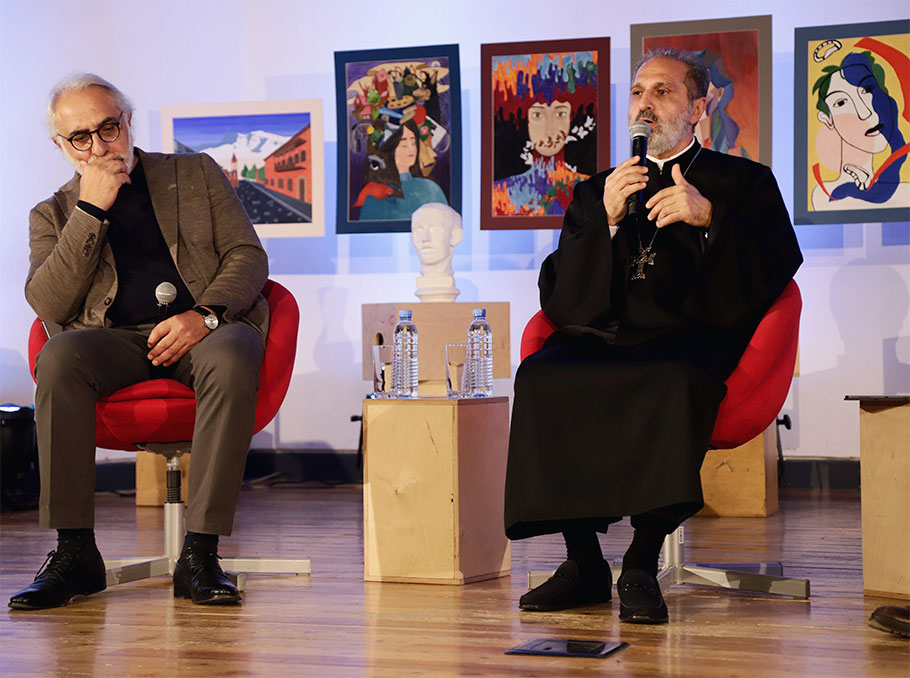
Sometimes I’m amazed at why puzzle games have become so fashionable. It’s because people have an inner need for wholeness. How pleasant it is—you don’t know those discrete, scattered pieces, but you have an image before your eyes that you want to assemble. Artificial, false spiritual hunger begins in you—you do it, finish it, and it’s over. Imagine our condition: we don’t have that image. What will we assemble from those pieces?
Thus, the drama of human atomization continues to this day. There’s no focus. Look at our media; everything is fragmented. I’m not even talking about the feed of social networks.
Culture brings wholeness; counterculture brings fragmentation. And leaders will come who will try to unite us. This is very dangerous. Therefore, each person must strive to create their spiritual image from these atomized fragments. This is very difficult, challenging, but, in my view, the only solution.
Lusine Gharibyan
Photos by Agape Grigoryan